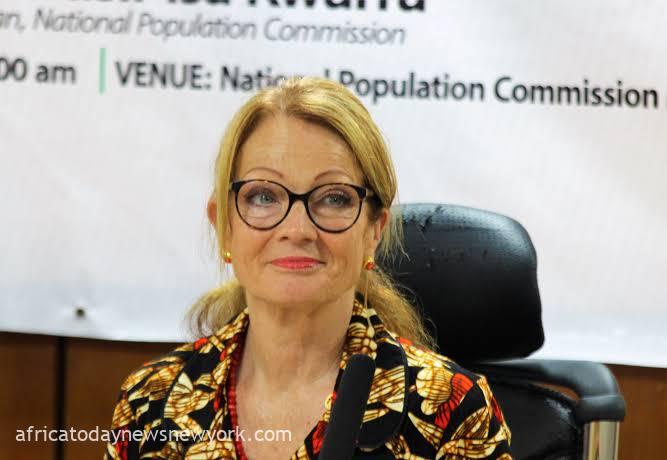The German Ambassador to Nigeria, Annett Gunther, has officially confirmed that the trade relationship between Germany and Nigeria in 2022 amounted to €3 billion.
Speaking to the press in Abuja, Ambassador Gunther revealed that Nigeria holds the position of Germany’s second-largest trading partner in Sub-Saharan Africa and is a significant political, economic, and cultural ally.
Gunther said: ‘Germany contributed a total trade volume of €3 billion in 2022 (up from €2 billion in 2021) and the European Union (EU), is Nigeria’s most important trading partner with total trade volume of €45,8 Billion. Germany’s Foreign Direct Investment (FDI) in Nigeria will prospectively surpass the €1 billion mark.’
Gunther pointed out that Germany’s chief exports to Nigeria include machinery (28 percent), food products (20 percent), and chemical products (19 percent), while Nigeria’s leading exports to Germany predominantly consist of crude oil (83 percent), food products (12 percent), and various raw materials (4 percent).
Read also: 29-Yr-Old Syrian Refugee Wins Elections As Mayor In Germany
According to Gunther, ‘There are 90 German companies present in Nigeria, creating around 1700 jobs directly and minimum 10-fold indirectly. All EU countries together have generated around 160000 jobs in Nigeria. Amongst the most active companies are Bayer, Bosch, DHL, Henkel, Knauf, Krones, Liebherr, Lufthansa, SAP, Siemens Energy and Synlab.’
In addition, Gunther pointed out that Beiersdorf, the German multinational, operates a large-scale factory in Lagos, creating job opportunities for roughly 1,000 Nigerians.
‘The state-of-the-art factory produces, among others, the well-known skin cream Nivea, known for its blue, round boxes,’ Gunther further said.
Gunther highlighted the ongoing bilateral energy partnership between the countries, established in 2008, which focuses on bolstering renewable energy production and improving energy efficiency within the energy and climate sector.
‘This has been expanded in line with the Federal Government’s National Hydrogen Strategy with the opening of a German-Nigerian Hydrogen Office in Abuja, which supports the hydrogen sector with a view of increasing Nigeria’s export capabilities.’
‘Presidential Power Initiative is ongoing to improve Nigeria’s electricity grid with Siemens technology as a basis for enhanced economic growth.’
‘There is interest by German companies in implementing Nigeria’s Energy Transition Plan (ETP), using German high-tech investments in climate-friendly technology,’ Gunther stated.
Gunther provided an overview of the German Government’s cooperation with Nigeria, outlining that their activities are organised into three main pillars: Development, Stabilisation, and Humanitarian Assistance, as well as Democracy, Rule of Law, and Human Rights.
Regarding development initiatives, the German diplomat announced that Germany has pledged €600 million in development cooperation grants for ongoing projects, solidifying its position as the second-largest donor.

